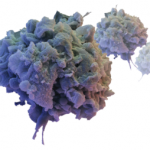Caring for pediatric patients during a pandemicin the age of COVID-19 requires adaptations, says Jay Mehta, MD, Children’s Hospital of Philadelphia. “The one exposure that seems to put [pediatric] patients at risk is if they are on higher doses of steroids, with some data suggesting worse outcomes. We just put out guidelines telling providers to reduce steroids in their patients to the lowest dose that can adequately control their disease.”








